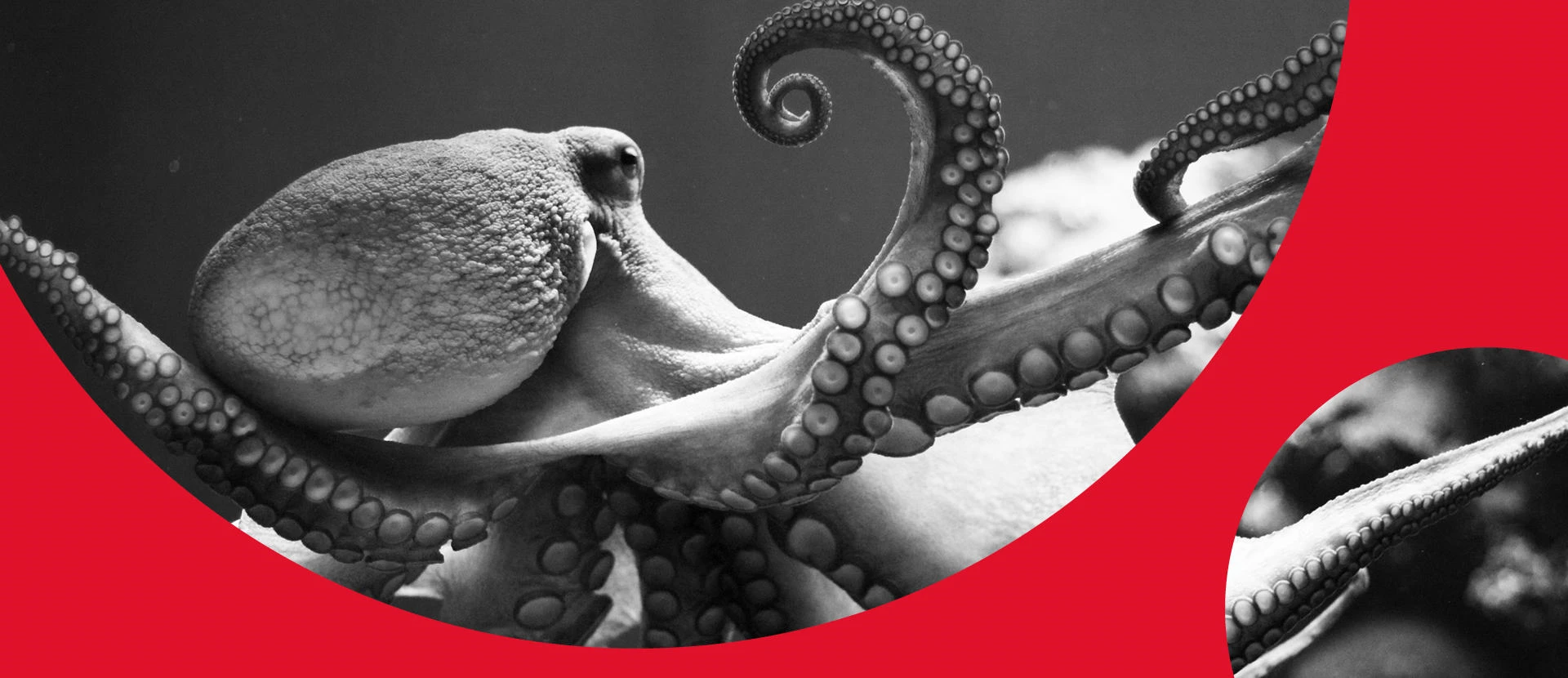Do Octopuses Have Feelings? The Question of Animal Sentience

To be sentient is to have positive or negative experiences, such as experiences of pain, pleasure, comfort, warmth, hunger, anxiety or joy. Humans are sentient, but are we alone?
In the UK, a new law requires all policymakers to have due regard for animal sentience. This law has given new urgency to the question: which other animals are sentient? Might some invertebrates, such as octopuses, crabs, snails, or even insects, have experiences that deserve respect and welfare protection?
Dr Jonathan Birch played a key role in amending the new legislation to include octopuses, crabs and lobsters. He is joined by Penny Hawkins and Huw Golledge to discuss the science, policy and philosophy of animal sentience.
Meet our speakers and chair
Jonathan Birch (@birchlse) is an Associate Professor at the London School of Economics and Political Science (LSE) and Principal Investigator on the Foundations of Animal Sentience project. He was the lead author on a "Review of the Evidence of Sentience in Cephalopod Molluscs and Decapod Crustaceans" that recently led to the UK government changing animal welfare law to extend new protections to octopuses, squid, cuttlefish, crabs and lobsters.
Penny Hawkins is Head of the Animals in Science Department at the Royal Society for the Prevention of Cruelty to Animals (RSPCA). Hawkins has been at the interface of science and policy for over 20 years, campaigning influentially for higher welfare standards in laboratories and helping them to understand and implement their duty to "reduce, refine and replace" animal experimentation.
Huw Golledge (@HuwGolledge) is Chief Executive Office and Scientific Director of both the Humane Slaughter Association and the Universities Federation for Animal Welfare. He has a background in developing neurophysiological and behavioural methods to assess and improve the welfare of laboratory animals, and is committed to the application of rigorous scientific investigation to advance our understanding and ultimately to improve the welfare of animals.
Bryan Roberts (@SoulPhysics) is an Associate Professor and Director of the Centre for Philosophy of Natural and Social Science, LSE. He specialises in the foundations of physics.
More about this event
This event is part of the running from Monday 13 to Saturday 18 June 2022, with a series of events exploring the practical steps we could be taking to shape a better world. The full programme is now availabe .
The Department of Philosophy, Logic and Scientific Method (@LSEPhilosophy) at LSE was founded by Professor Sir Karl Popper in 1946, and remains internationally renowned for a type of philosophy that is both continuous with the sciences and socially relevant.
Twitter hashtags for this event: #LSEFestival
LSE holds a wide range of events, covering many of the most controversial issues of the day, and speakers at our events may express views that cause offence. The views expressed by speakers at LSE events do not reflect the position or views of The London School of Economics and Political Science.
From time to time there are changes to event details so we strongly recommend that if you plan to attend this event you check back on this listing on the day of the event.
LSE holds a wide range of events, covering many of the most controversial issues of the day, and speakers at our events may express views that cause offence. The views expressed by speakers at LSE events do not reflect the position or views of the London School of Economics and Political Science.
